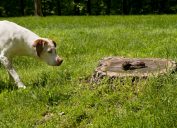10 Dog Breeds That Bark the Most, According to Veterinarians
Without training, these canines are the most likely to mouth off.

Pet owners tend to gravitate to different dog breeds for one reason or another, whether it's finding the right fit for their living situation or simply choosing animals that mesh with their personalities. This decision can also be influenced by certain traits associated with each breed, including their energy levels, exercise requirements, temperament, and even how much noise they tend to make. But since no two dogs are exactly alike, experts say it's important to consider what's really at play when looking at the information.
RELATED: Cesar Millan Says You Should Never Walk Behind Your Dog—Here's Why.
"Although certain dog breeds may have more of a predisposition toward barking than others because they were bred to protect people's homes and livestock or flush prey out of hiding for hunters, every dog is hard-wired to bark, so choosing a dog by breed solely with the expectation that it will not bark much is not the right thing to do," explains Alexandra Bassett, CPDT-KA, lead trainer and behavior specialist at Dog Savvy Los Angeles. "But no pet parent needs to live with chronic barking if they understand how to respond to the different types of barking a dog does."
She says that some breeds are more prone to alarm barking, while others can develop "demand barking" habits that result from accidental reinforcement from pet parents who "cave" to their dog's demands. Other breeds—especially those in the herding and sporting categories—can even develop excessive barking habits out of boredom.
Of course, genetics are no match for proper training. But in some cases, certain types of dogs are predisposed to making more noise without the proper attention and care. Read on for the dog breeds that bark the most, according to veterinarians.
1
Miniature Schnauzers
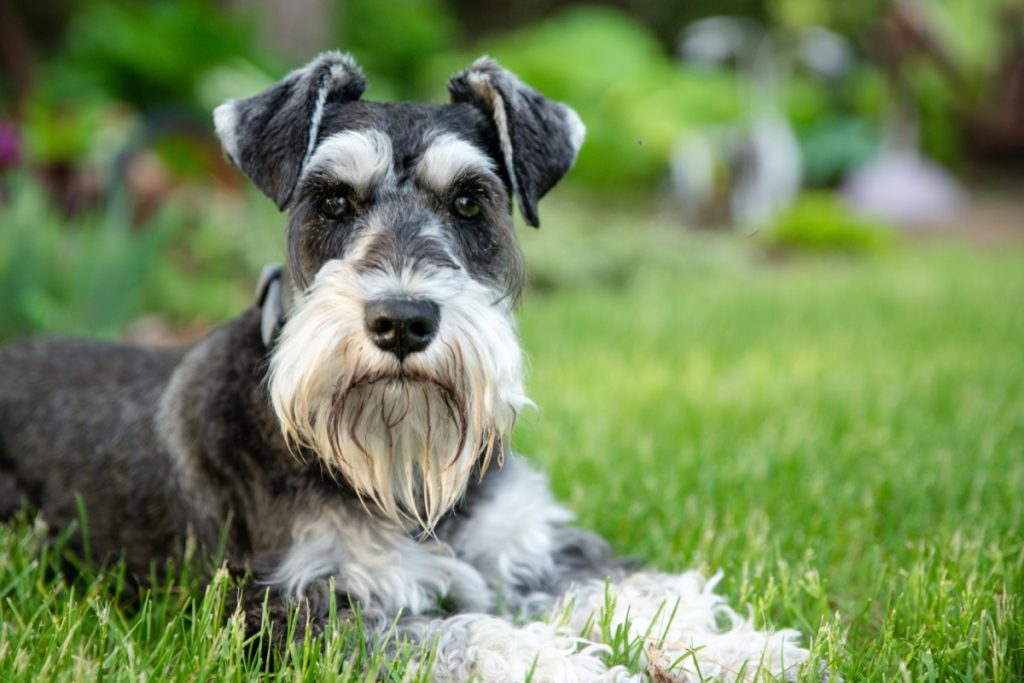
Due to their slightly smaller size, Miniature Schnauzers are a popular pick for pet parents. However, experts say the breed can become noisy if not properly cared for.
"Schnauzers are highly intelligent dogs that make wonderful family pets if all of their basic needs are met, but can become chronic barkers if they don't get enough exercise and enrichment," says Bassett. "Since they were bred to be guard dogs, it's important to calm them down when they alarm bark. Otherwise, they may bark at every unfamiliar noise they hear or person they meet."
2
Siberian Huskies
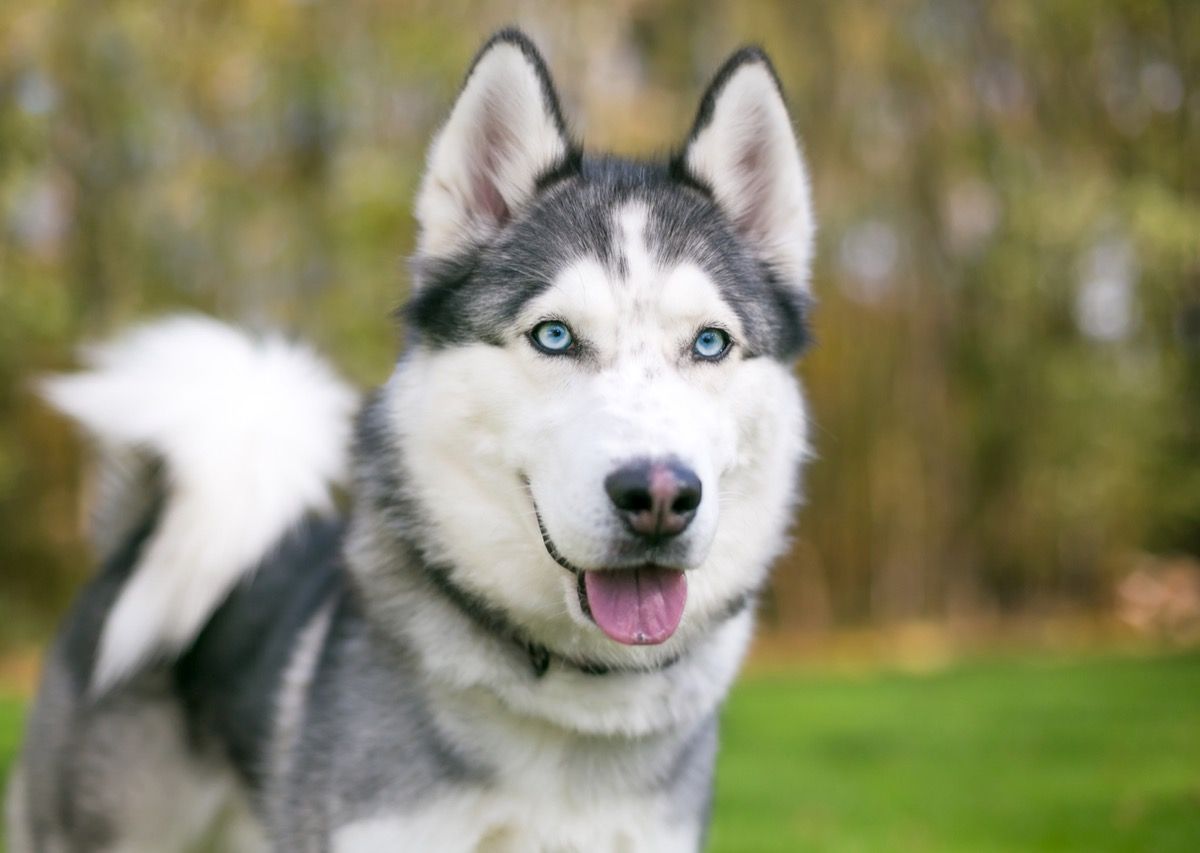
Known for their tolerance of extreme cold and their history as sled dogs, Siberian Huskies also remain popular due to their refined look. But they're another breed experts say are highly vocal in nature.
"Siberian Huskies are a highly energetic and talkative breed that tends to howl rather than bark," says Bethany Hsia, DVM, licensed veterinarian and co-founder of CodaPet. She explains that this is partly due to the breed's pack-oriented nature and is often more harmonious-sounding rather than jarring.
RELATED: 10 Best Ways to Pet-Proof Your Home.
3
Samoyeds
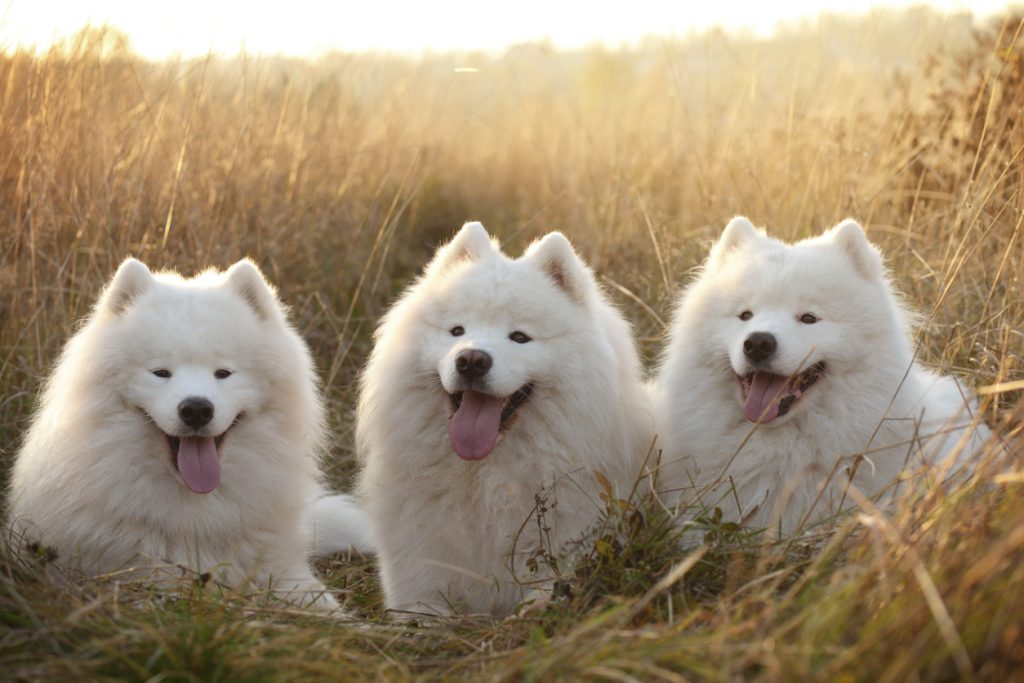
Deeply rooted animal instincts bred into dogs on purpose are one reason they may be noisier than others. However, in the case of breeds like Samoyeds, it can also have to do with other genetic elements.
"This breed is closely related to the wolf, and they will howl at almost any sound," says Sally Grottini, a dog behavior expert at JustAnswer. "Like wolves, they want to get their group together at any sign of danger. They are also a verbal breed and will bark or whine with excitement."
4
Beagles
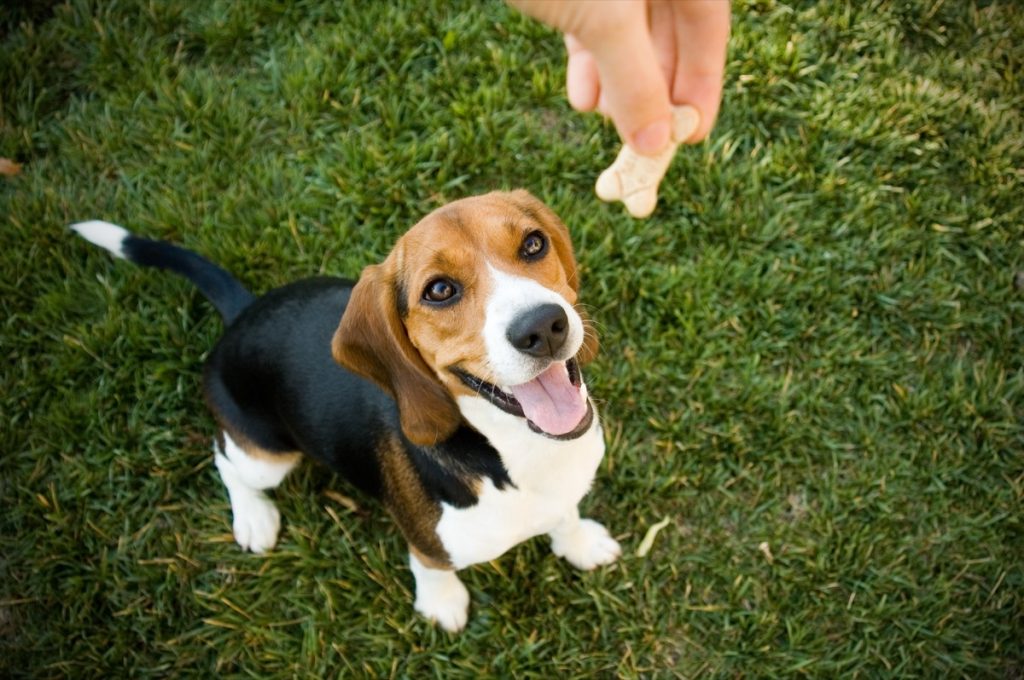
The Beagle is a small-to-medium-sized hound known for its keen sense of smell and unmistakable bay.
"While their barks are not particularly loud, Beagles are pretty vocal and tend to bay, especially when they pick up an interesting scent," Aaron Rice, an expert dog trainer and co-owner of Stayyy, tells Best Life. "Their hunting instincts make them prone to barking, so early training is essential to manage their vocal tendencies."
5
Great Pyrenees
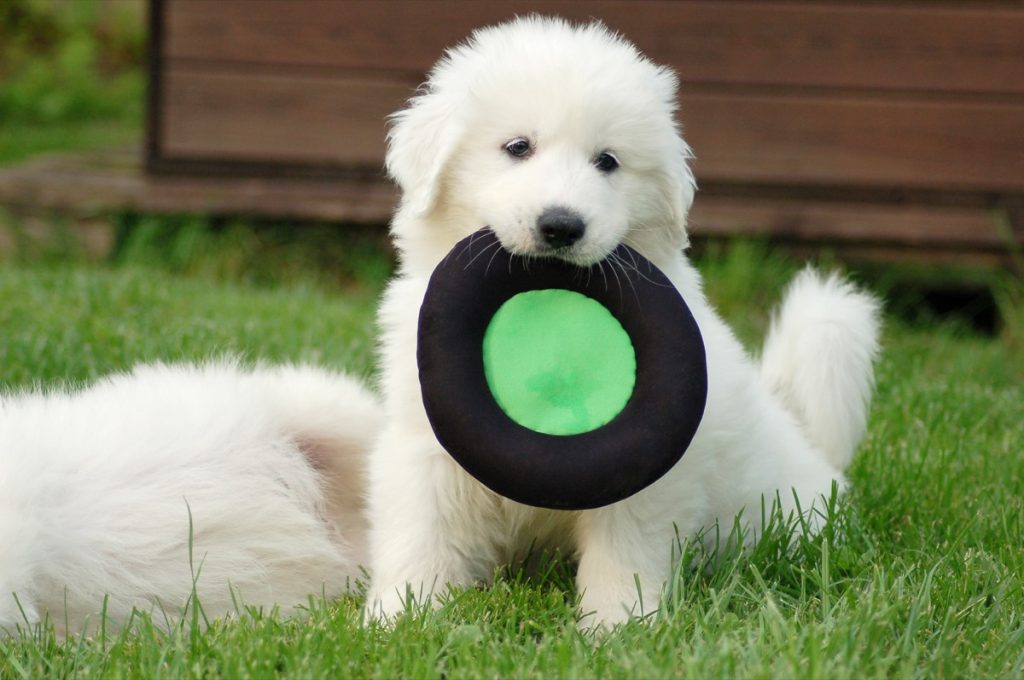
As a larger working breed, Great Pyrenees stand out because of their adorably fluffy coat and determined personalities. However, part of their built-in temperament means they may need special training to curb their tendency to bark.
"These dogs were bred to keep predators away from farm animals, especially when the owners are not nearby," says Grottini. "They often watch a herd of livestock during the night hours to keep livestock safe from predators like wolves and coyotes. Their barking will continue until the predator moves away or is taken care of by the owner."
According to Bassett, guarding breeds that are not properly socialized from a young age can easily become overwhelmed by new and unfamiliar stimuli and may bark a lot as a result. She suggests exercise, training, enrichment, and early socialization practices to help prevent issues.
RELATED: 10 Best Dog Breeds to Own If You're Over 55, Veterinarian Says.
6
Australian Shepherd
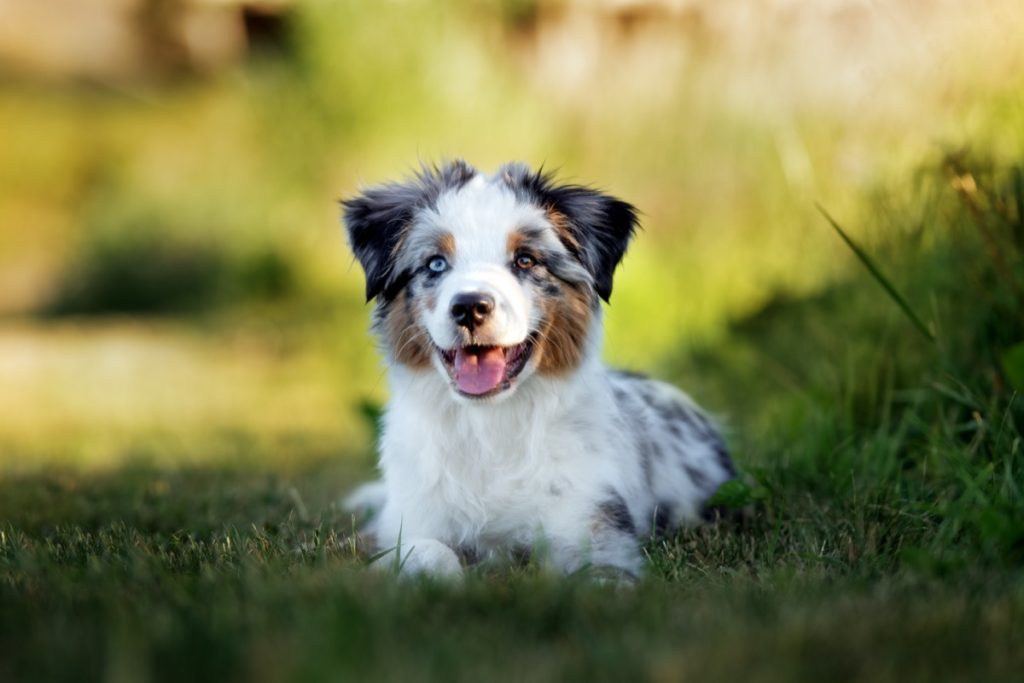
Known for their intelligence and friendly disposition, Australian Shepherds are a popular family pet pick. However, their breed's history also means they can be more vocal than other dogs.
"Aussies are herding dogs at heart and use their bark to control and direct livestock," says Sara Ochoa, veterinarian and co-founder of How To Pets. "This instinctual behavior means they're also likely to use their voice to try to 'herd' humans or other pets at home."
7
Chihuahuas
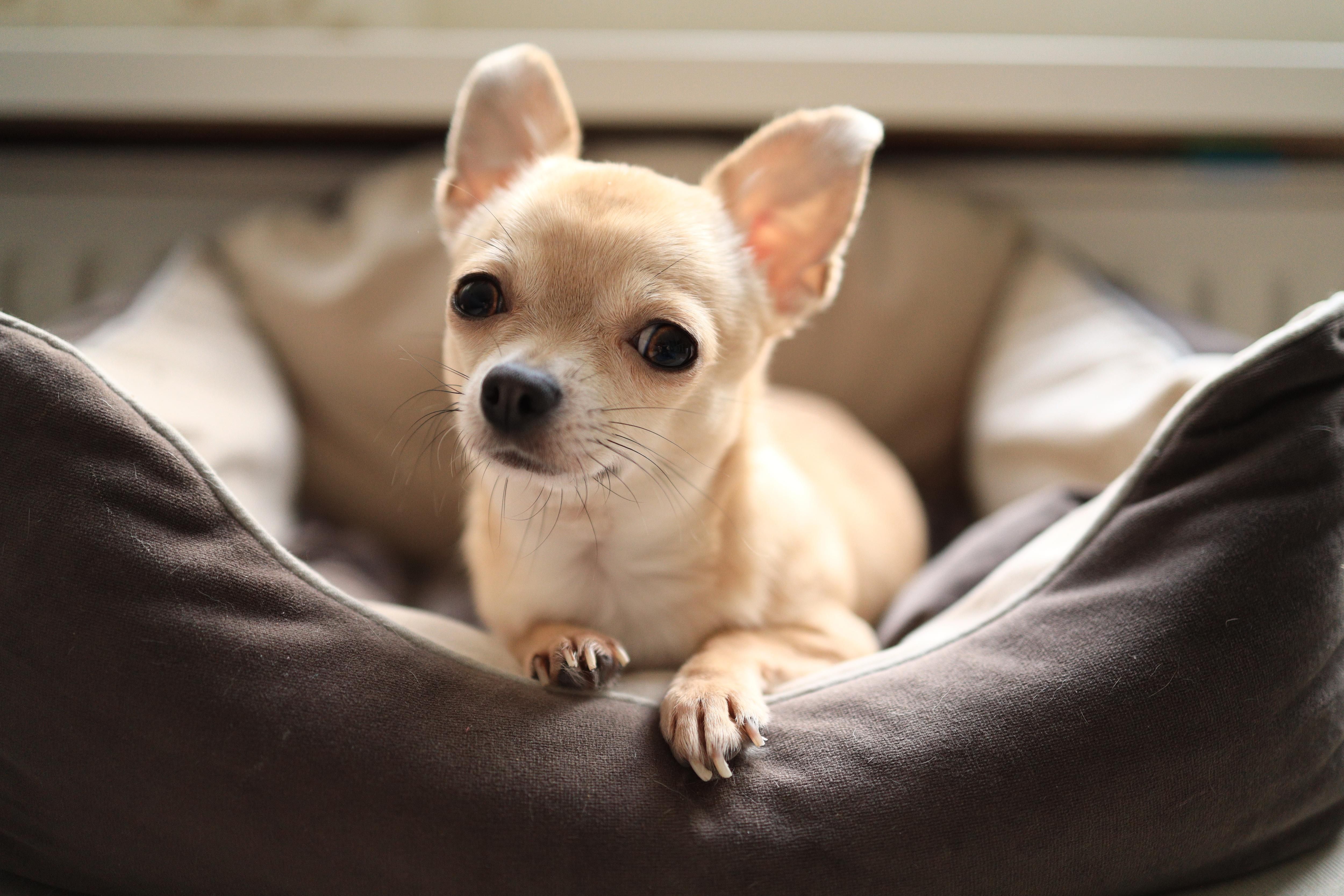
For many pet owners, Chihuahuas are a perfect pocket-sized choice for companionship. But according to Rice, their stature belies how they feel about their place in the world.
"Despite their tiny size, Chihuahuas have a big personality and tend to bark as though they are much bigger than they are," he says. "These pint-sized pups are often quite vocal, using their barks to communicate their feelings and needs."
He warns that they may become habitual barkers without proper training. "Early socialization is important to avoid this," he suggests.
8
German Shepherds
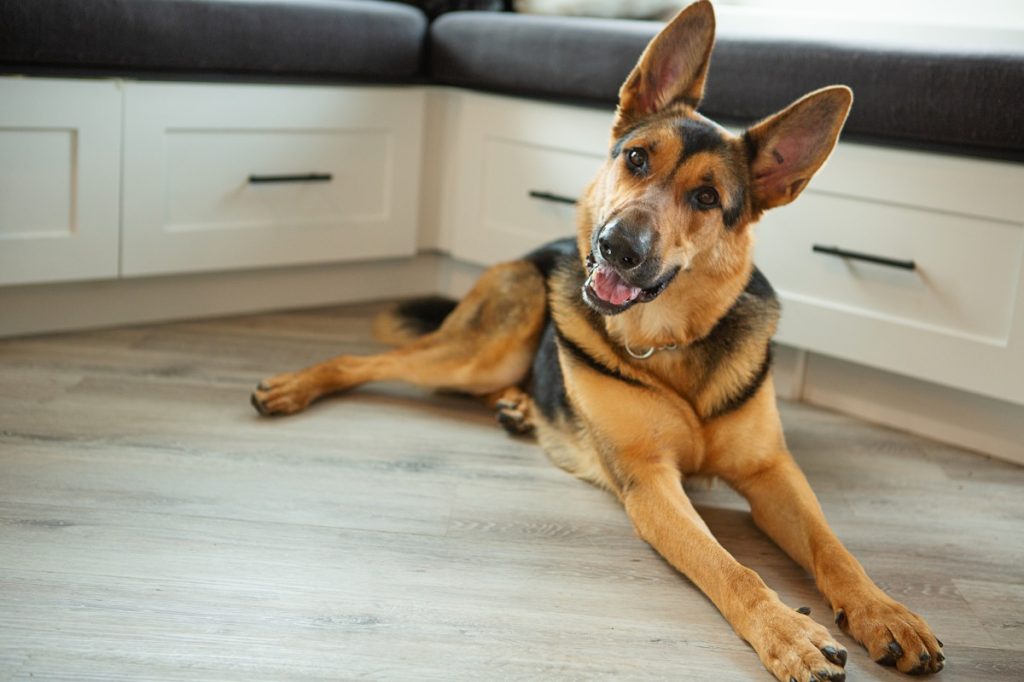
German Shepherds are often seen as the epitome of poise, security, and even temperament. But though they are renowned for their loyalty, intelligence, and protective nature, they can also be prone to making more noise than other breeds.
"While their barks serve as a warning to potential intruders, they can also bark out of boredom or anxiety if not provided with sufficient physical and mental stimulation," says Rice. "Fortunately, with consistent training and exercise, their barking can be managed effectively."
RELATED: The 10 Most High-Maintenance Dog Breeds, New Study Shows.
9
Pomeranians
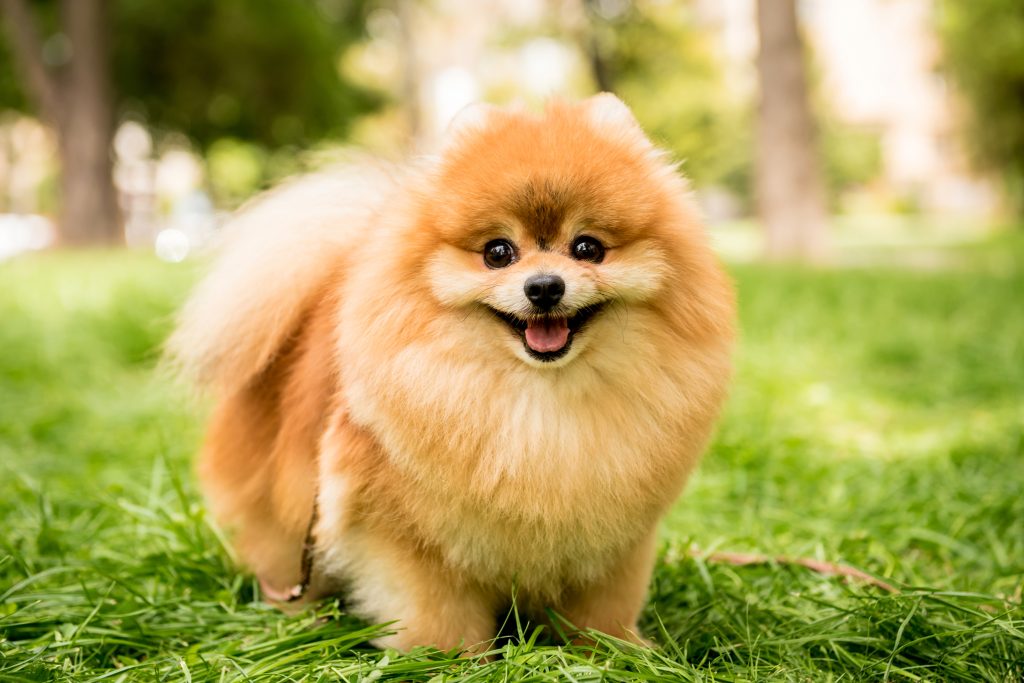
Many prospective pet owners are endeared to Pomeranians thanks to their permanent smile and adorably fluffy coat. However, similar to Chihuahuas, they tend to punch a little bit above their weight when it comes to attitude.
"Although their compact size may lead adopters to think they will make a good lap dog, they are a high-energy toy breed that needs lots of exercise, training, and enrichment to be a happy house pet," says Bassett. "Adopting a Pomeranian is more like having a large, active breed, guard dog in a small dog body than getting a comfort-seeking lap dog."
She explains that Pomeranians are alert and aware of changes in their environment, and barking at new stimuli can develop into a habit of barking excessively in any situation. "They are somewhat defensive of their territory and thus may bark when they hear any outside noises, so making an effort to calm them down and reassure them when they are alarm barking is necessary if pet parents don't want them to become nuisance barkers," she suggests.
10
Yorkshire Terriers
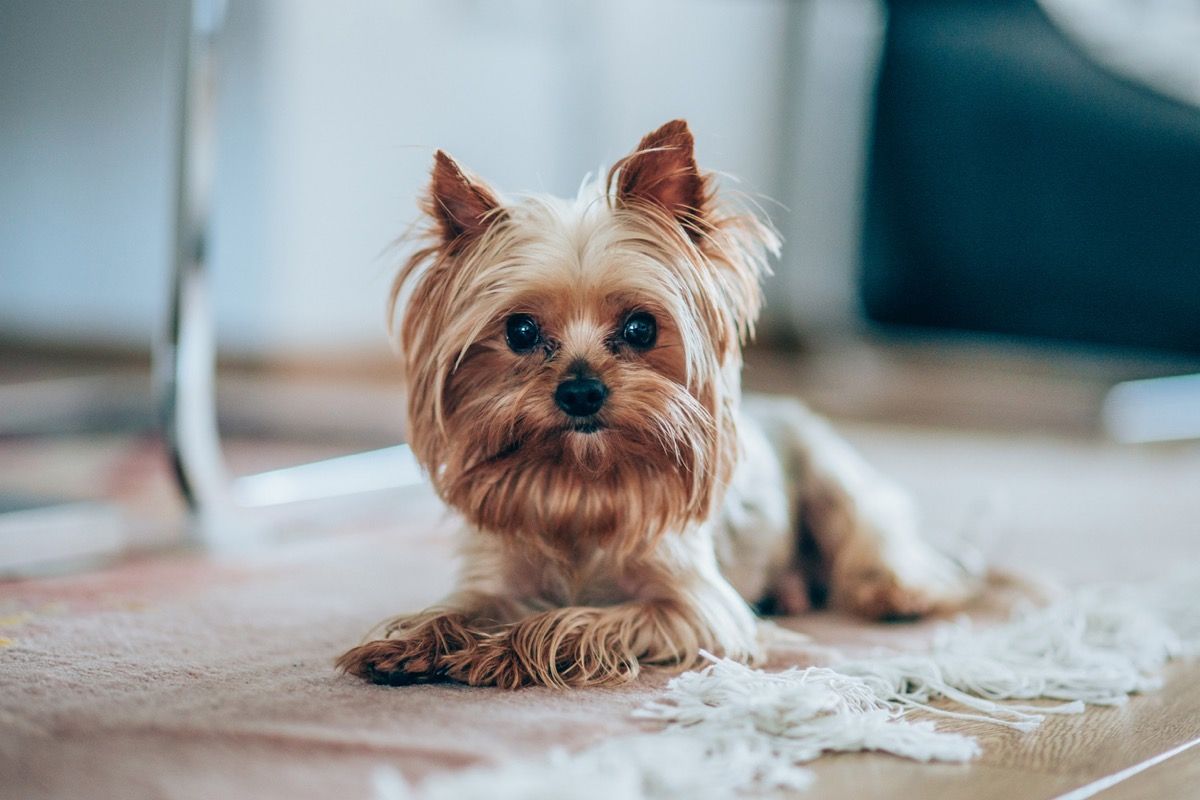
Contrary to popular belief, tiny stature does not automatically make a breed more likely to make noise. But one popular toy variety can embody this stereotype without owner intervention.
"Yorkshire Terriers are bold and aggressive, with a tendency to bark at unfamiliar sounds or perceived threats," says Rice. "Early socialization and positive reinforcement training can help curb their barking tendencies and channel their energy into more constructive behaviors."





